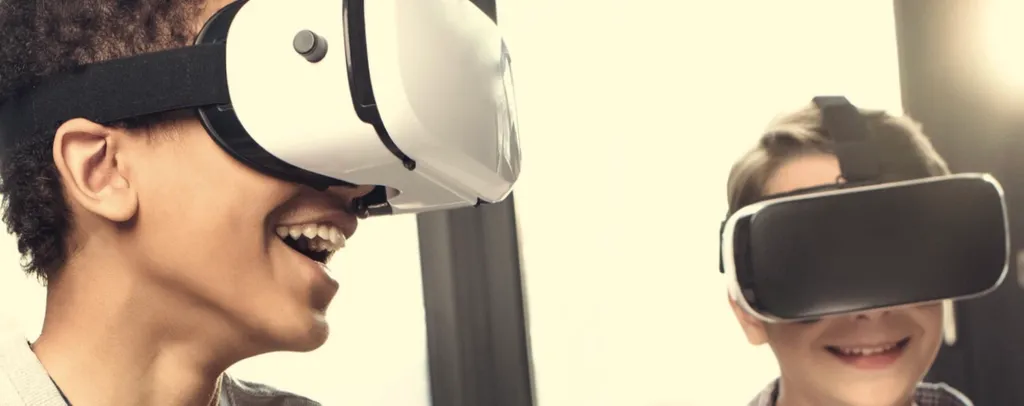A new report from Stanford researcher Jeremy Bailenson in partnership with Common Sense Media outlines what parents need to be thinking about if their children are interested in trying VR.
Common Sense Media operates a site with reviews that help parents gauge if a movie or game is appropriate for their child. In a foreword to the report, Common Sense founder and CEO James P. Steyer wrote that they’d begin reviewing VR games too.
Bailenson is the founding director of the Virtual Human Interaction Lab at Stanford and he recently released a book, Experience on Demand, covering potential uses for VR and outlining some of the unknowns. One of those unknowns is the long-term effects of VR on children. The new report offers helpful guidelines for parents to think about VR usage, while also providing ample references if you want to dive deeper. The report is quick to point out, however, that “when it comes to VR and kids, we just don’t know all that much.”

Among the “key findings”:
- Virtual reality is likely to have powerful effects on children because it can provoke a response to virtual experiences similar to a response to actual experiences.
- The long-term effects of children’s use of immersive VR on their still-developing brains and health are unknown, but most parents are concerned, and experts advocate moderation and supervision.
- Only one in five U.S. parents (21 percent) today report living in a household with VR, and the majority (65 percent) are not planning to purchase VR hardware. However, the interest levels of U.S. children are high, while parent interest is mixed.
- Characters in VR may be especially influential on young children, even more so than characters on TV or computers. This can be good or bad depending on the influence.
- Students often feel more enthusiasm for learning while using VR, but they do not necessarily learn more through VR than through video or computer games.
- VR can potentially be an effective tool for encouraging empathy among children, though most parents are skeptical.
- When choosing VR content, parents should consider whether they would want their children to have the same experience in the real world.
One section of the report covers the suggested age guidelines outlined by various companies, which range from 7 to 12 or 13 years old. “However, there is no clinical rational for this age.” According to the report, “more than seven in 10 parents of 8- to 17-year-olds who use VR say that it is appropriate for children under 13 to use VR.”

One section can help parents think about how VR might affect children of different ages, including “whether children can distinguish between actual and virtual experiences.” The document cites research showing that by age 5 “children can understand the difference between reality and fantasy on television.” It also suggests there is a “shift in perception” typically between the ages of 5 and 7, and that “children younger than 7 could face challenges discerning when virtual events are not real.”
“One study showed that 5-year-old children followed the advice of a virtual character shown on a television screen as frequently as that of a live person, but 7- and 9-year-old children followed the advice of a live person more often than that of a virtual character.”

The report also states “much of what we can predict about the negative effects is conjecture, based largely on previous research with traditional media.”
Bailenson recently authored a piece for CNN warning about the potential risk of using VR to train for a mass shooting, and the Common Sense report states, “More than three decades of research suggest that violent video gameplay is a risk factor for stimulating aggressive behavior.”
“To the extent that violent video games increase hostile tendencies and arousal, we should expect even stronger effects from VR.”

The report also covers the benefits of VR for things like education and pain management, and closes with a helpful guideline for people to think about: “would this be something you would do in real life or would want your child to do in real life?”
If the answer is no, avoid that content, the report concludes. The full report can be downloaded with a free account sign up here.


























